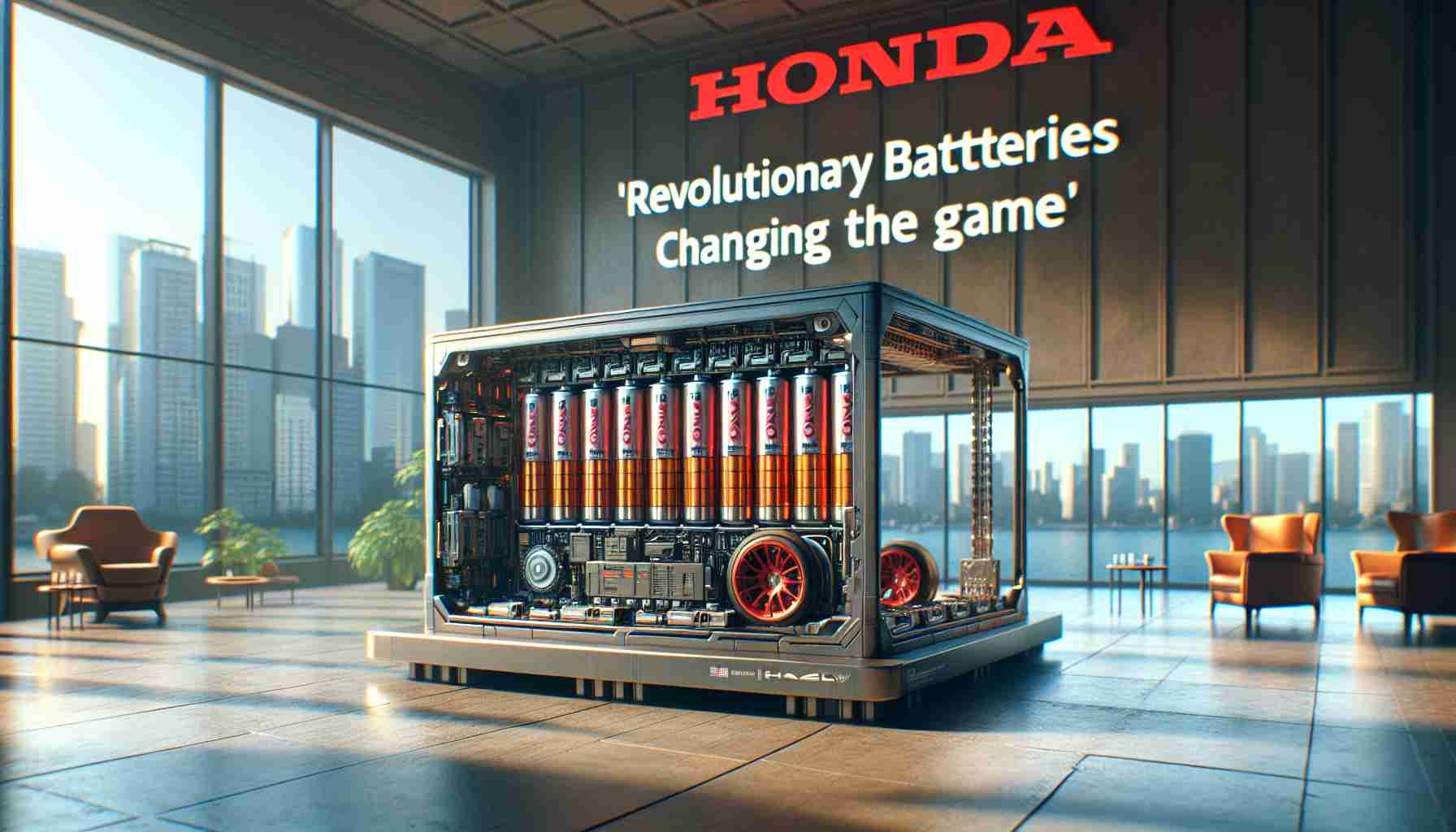Honda Leaps Ahead with Solid-State Battery Production
Honda has officially unveiled its advanced production line dedicated to solid-state batteries, set to pave the way for technological breakthroughs by the end of the decade. This significant development took place in Sakura City, Japan, where a sprawling 295,000-square-foot facility now stands ready to revolutionize battery manufacturing.
Initially targeted for a spring 2024 start, the plant’s operations are now slated to begin in January 2025. This cutting-edge facility will not only establish the foundation for mass production but also refine cost analysis and finalize cell specifications crucial for future scalability.
Honda’s innovative approach leverages techniques from traditional liquid-electrolyte lithium-ion batteries but includes specialized roll-pressing to enhance the density and contact quality within the battery. This novel method promises to improve both efficiency and performance, targeting breakthroughs in energy storage technology.
The production process has seen enhancements in various stages, particularly in electrode bonding, which streamlines operations and reduces energy consumption. This strategic move promises significant affordability and sustainability advancements.
Honda envisions these solid-state batteries extending beyond cars to power motorcycles and even aircraft, thus expanding the potential market and achieving economies of scale. This ambition aligns with Honda’s broader strategy to produce a more affordable and long-range electric vehicle by 2030.
Anticipation continues to build as Honda pushes the boundaries of battery technology, aiming for a sustainable and financially viable future in electric mobility.
The Hidden Revolution: How Solid-State Batteries Could Transform Our World
In the ever-evolving landscape of battery technology, Honda’s leap into the realm of solid-state batteries marks a pivotal moment that promises to reshape not only transportation but also numerous facets of daily life. As we delve deeper into this development, let’s explore what lies beneath the surface of these innovations in solid-state technology and how they could potentially redefine the future.
Understanding Solid-State Batteries: What Sets Them Apart?
Unlike conventional liquid-electrolyte lithium-ion batteries, solid-state batteries use a solid electrolyte, which offers several advantages. One of the most significant benefits is the enhanced safety profile; they are less prone to catching fire due to overcharging or physical damage. Additionally, solid-state batteries can potentially offer higher energy densities, which translate to longer-lasting power for devices and vehicles.
Impact on Technology and Humanity: A Closer Look
The influence of solid-state batteries extends beyond enhancing electric vehicles (EVs). These batteries are poised to revolutionize a myriad of sectors, from consumer electronics to renewable energy storage and beyond.
1. Consumer Electronics: With the potential to store more energy in a smaller footprint, solid-state batteries could lead to slimmer, lighter, and more powerful smartphones, laptops, and other gadgets. Imagine a smartphone that lasts days on a single charge rather than hours.
2. Renewable Energy: Storing energy efficiently is a significant challenge for solar and wind power. Solid-state technology could offer robust solutions for energy storage, making renewables a more reliable source, accelerating the global shift away from fossil fuels.
3. Transportation Transformation: Beyond just cars, solid-state batteries might find applications in motorcycles, airplanes, and even space travel, potentially unlocking new forms of mobility and exploration.
Challenges and Controversies: What Needs to be Addressed?
As promising as solid-state batteries are, they do come with challenges. The technology is currently expensive to produce, and there are hurdles in scaling up manufacturing processes to make these batteries cost-effective for widespread adoption.
Moreover, there are ongoing controversies about the environmental impact of battery production. While these batteries are safer and potentially longer-lasting than their liquid counterparts, the sourcing of materials like lithium and cobalt poses ethical and ecological concerns.
Why the Wait? The Journey to 2025 and Beyond
Honda’s timeline indicates a January 2025 launch of their solid-state battery production—a slight delay from previous projections. Questions arise about why these advancements take so long. The answer lies in refining the technology for mass production, ensuring the highest safety standards, and achieving economic viability before releasing to market.
Advantages and Disadvantages: A Balanced Outlook
Advantages:
– Enhanced safety and longevity.
– Higher energy density for longer device life.
– Potential to power a wide range of technologies and vehicles.
Disadvantages:
– High initial production costs.
– Material sourcing and environmental concerns.
– Current technology and manufacturing limitations.
Looking to the Future: Is Humanity Ready?
Are we prepared for this next step in battery evolution? As industries and consumers anticipate the arrival of this technology, society must consider infrastructure, investment in new manufacturing facilities, and policy frameworks that support sustainable practices.
For further insights, you could explore renewable energy advancements and other emerging technology developments at Scientific American and explore global technology trends at TechCrunch.
Solid-state batteries hold transformative potential, signaling an exciting frontier in technology capable of redefining how we live, work, and interact with the world around us. As 2025 approaches, anticipation builds—not just for Honda but for humanity itself, standing on the precipice of a new era in energy and technology.







